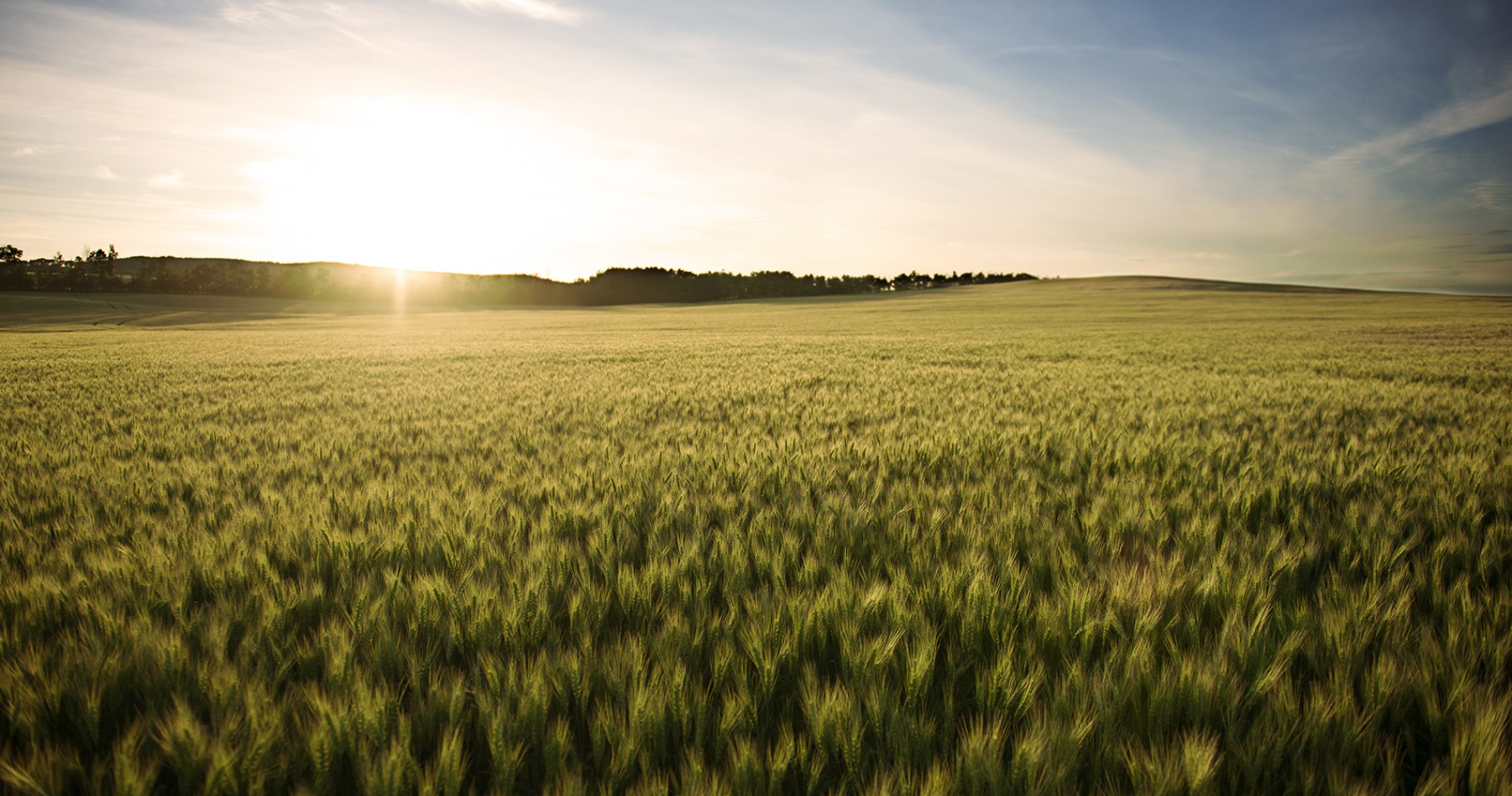Get involved, give back: Alberta Grains chair believes in strong, stable representation for farmers
“I’m a big believer in helping and giving back,” said Scott Jespersen who operates Blue J Farms in the Spruce Grove area. For years, in fact, he has helped those in need by working with relief organizations around the globe. He has assisted in building schools, hospitals and wells. In the early 2000s at a refugee camp in Syria, he helped raise money to distribute heaters and blankets among 160,000 people. Ultimately, it was this deeply held belief in giving back that led him to run for a position on the board of Alberta Grains.
Scott’s great grandfather launched the farm more than a century ago, and though retired, his father Merrill continues to assist the family business. Scott worked through the farm succession process in 2024 with his son Ryan who is the family’s fifth generation to take up agriculture.
The three latest Jespersen generations have seen big changes. When Scott assumed control of the farm in 1999, the family expanded the farm’s existing dairy business. Having milked cows for 65 years, they sold the operation in 2013.
-large.jpeg)
ABOVE: Alberta Grains Chair Scott Jespersen (middle) with his father Merrill (left) and son Ryan (right).
The farm remains a mixed operation and maintains a herd of 150 Black Angus–Simental cross beef cows. The crop rotation includes alfalfa for the livestock as well as barley, canola, hard red spring wheat, oats and peas.
Scott’s neighbour, longtime Alberta Barley delegate and director Bryan Adam, was adamant Scott should work with Alberta Grains. Adam made repeat visits to the Jespersen farm to encourage Scott. “By the fourth time, I said, ‘OK, fine, I’ll just join,’” said Scott with a laugh. Though reluctant, he admitted the timing was right. “It was just a perfect fit. I had Ryan to look after the farm, and I could use my experience to give back to the commission and the ag community.”
Scott was elected Region 5 director and vice-chair in August 2023, on the first Alberta Grains board following the amalgamation of the Alberta Wheat Commission and Alberta Barley. He became acting chair in May 2025 when Tara Sawyer vacated the position to run in the Olds–Didsbury–Three Hills by-election. After her win, Scott was elected chair in June 2025.
Stepping in as the two commissions joined made for a steep learning curve, said Scott. “Though they are both cereals, the two supply chains have their own unique-but-similar issues and complexities. Both compete for similar goals and objectives. To combine the two is just a natural progression.”
He was well acquainted with the on-farm challenges of agriculture but admitted the complex challenges that exist from elevator to consumer have been eye-opening. “I was amazed at what Alberta Grains does for farmers. There are so many things we do on their behalf, from lobbying and relationship building to giving insight and direction to decisionmakers in government. I really enjoy it.”
Just as experienced board members pass on their knowledge and wisdom to him, he believes it is critical he provides mentorship and continuity to junior board members. “I’m a huge legacy person.” He encourages fellow farmers to get involved and discover the diversity of board work for themselves. “Get involved to find out. We always need young people to come up and carry on the Alberta Grains legacy.”
This legacy is straightforward, he said. “We work to provide strong, stable and intentional leadership that makes our industry better, and to ensure farmers are profitable. As we bring up the new leaders, we must equip them to lead the organization into the future.” He would love to see farmers line up to get involved with Alberta Grains because they see its value. “That would be a win.”
Trade issues are top priority, said Scott. “I’d like to see the elimination of interprovincial trade barriers—free trade within Canada. We need to strengthen our relationships with our trading partners around the world so our industry can flourish in an environment of stability and profitability. There’s nothing worse than uncertainty.”
Alberta Grains can also be instrumental in raising the profile of the entire agriculture industry, he added. “Government needs to recognize how important the ag community is to the province and to all the families that support it. Without agriculture, rural communities do not exist.”

